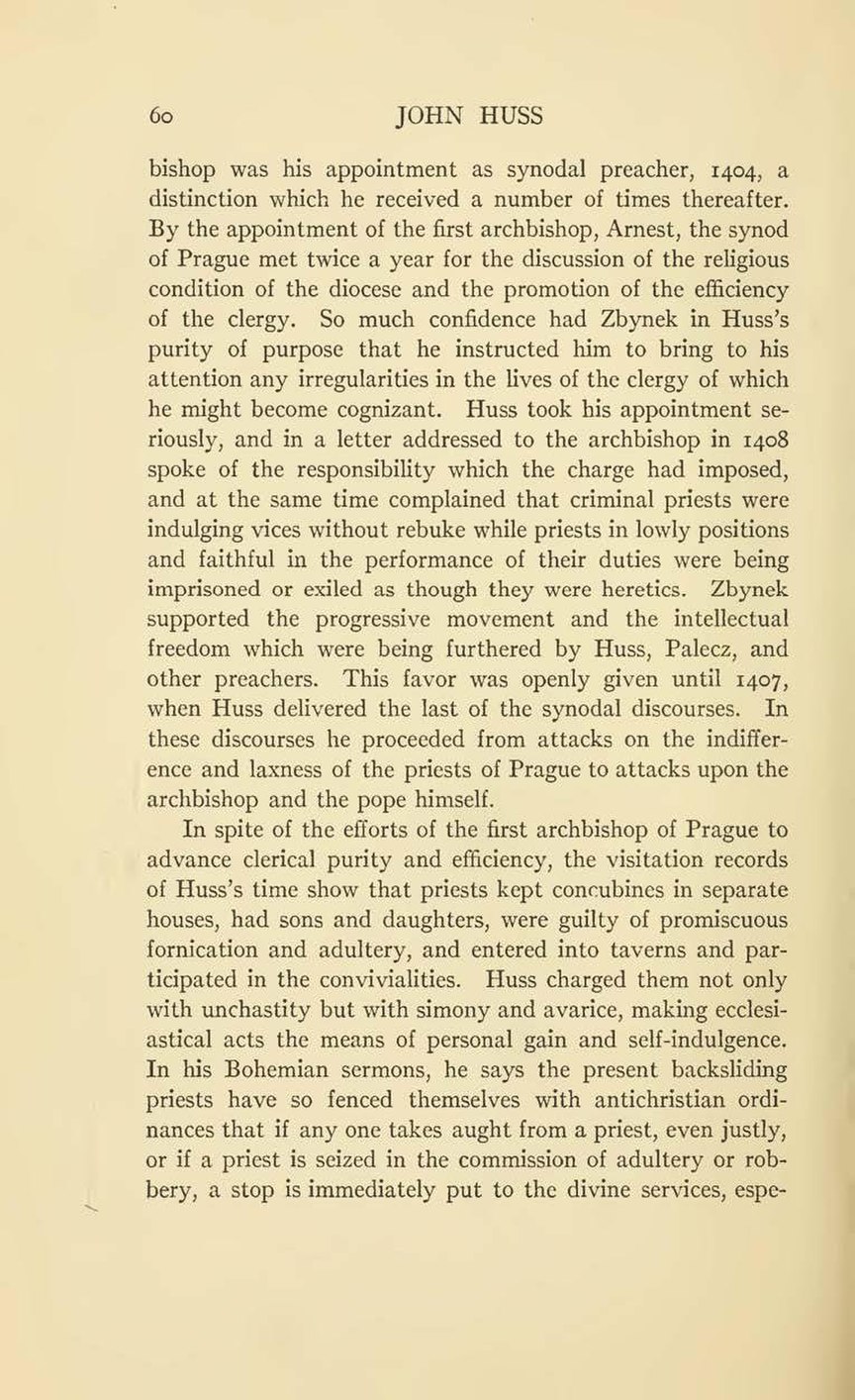bishop was his appointment as synodal preacher, 1404, a distinction which he received a number of times thereafter. By the appointment of the first archbishop, Arnest, the synod of Prague met twice a year for the discussion of the religious condition of the diocese and the promotion of the efficiency of the clergy. So much confidence had Zbynek in Huss’s purity of purpose that he instructed him to bring to his attention any irregularities in the lives of the clergy of which he might become cognizant. Huss took his appointment seriously, and in a letter addressed to the archbishop in 1408 spoke of the responsibility which the charge had imposed, and at the same time complained that criminal priests were indulging vices without rebuke while priests in lowly positions and faithful in the performance of their duties were being imprisoned or exiled as though they were heretics. Zbynek supported the progressive movement and the intellectual freedom which were being furthered by Huss, Palecz, and other preachers. This favor was openly given until 1407, when Huss delivered the last of the synodal discourses. In these discourses he proceeded from attacks on the indifference and laxness of the priests of Prague to attacks upon the archbishop and the pope himself.
In spite of the efforts of the first archbishop of Prague to advance clerical purity and efficiency, the visitation records of Huss’s time show that priests kept concubines in separate houses, had sons and daughters, were guilty of promiscuous fornication and adultery, and entered into taverns and participated in the convivialities. Huss charged them not only with unchastity but with simony and avarice, making ecclesiastical acts the means of personal gain and self-indulgence. In his Bohemian sermons, he says the present backsliding priests have so fenced themselves with antichristian ordinances that if any one takes aught from a priest, even justly, or if a priest is seized in the commission of adultery or robbery, a stop is immediately put to the divine services, espe-
